Journal
Dec 24, 2023
Gaps between wrapping the gifts at my parents' house before Christmas dinner are always a great time to think about the closing year.
Overall, 2023 felt slow, but after reviewing Google Photos, it could be because it started intense, and the last half has been more stable. Some highlights below, but one of the most significant changes has been almost leaving social networks. Elon Musk's landing at Twitter and Reddit CEO disaster made me ditch my main time suckers in a glimpse. I haven't missed them a single minute, and it has improved my mental health a bit. At the start of the year, I would do the same with Instagram, where I mostly flex and lose a lot of time, amazed by its cringe.
Here are some highlights from this year in pictures. I wanted to keep it at one image per month but had to add some extras.
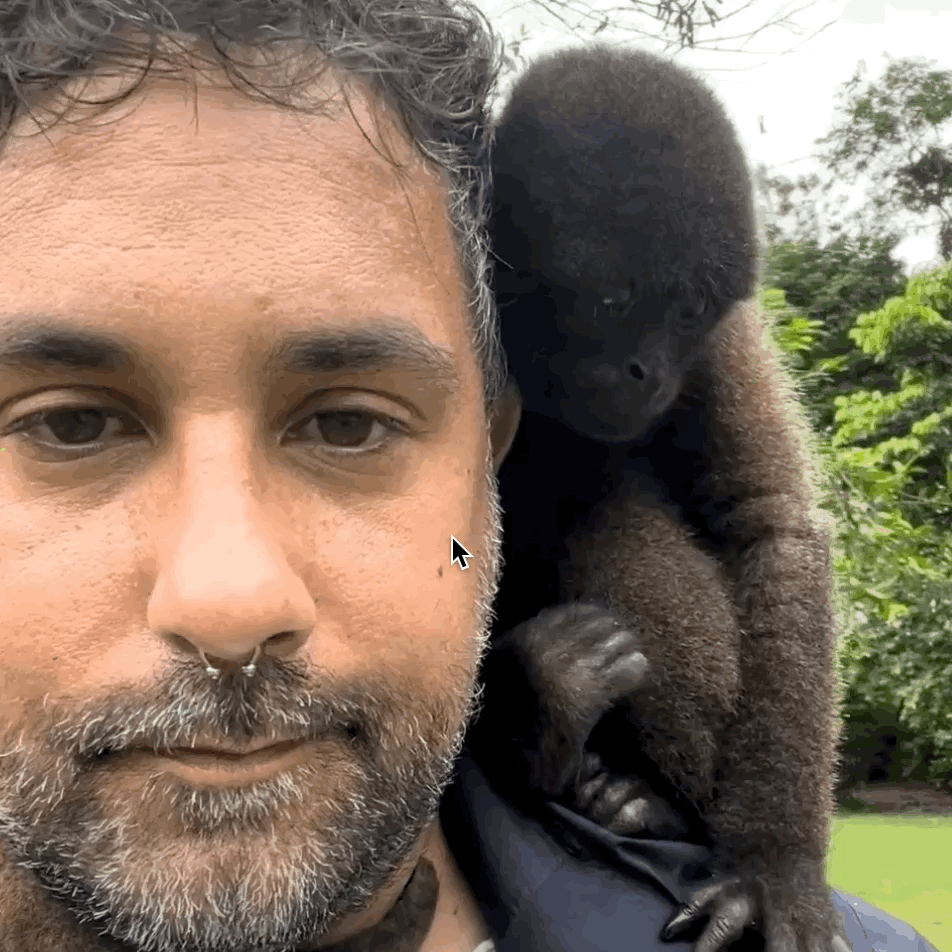
January - Monkey Sanctuary at the Amazon (Peru) before my friends Iker and Luzma's wedding.
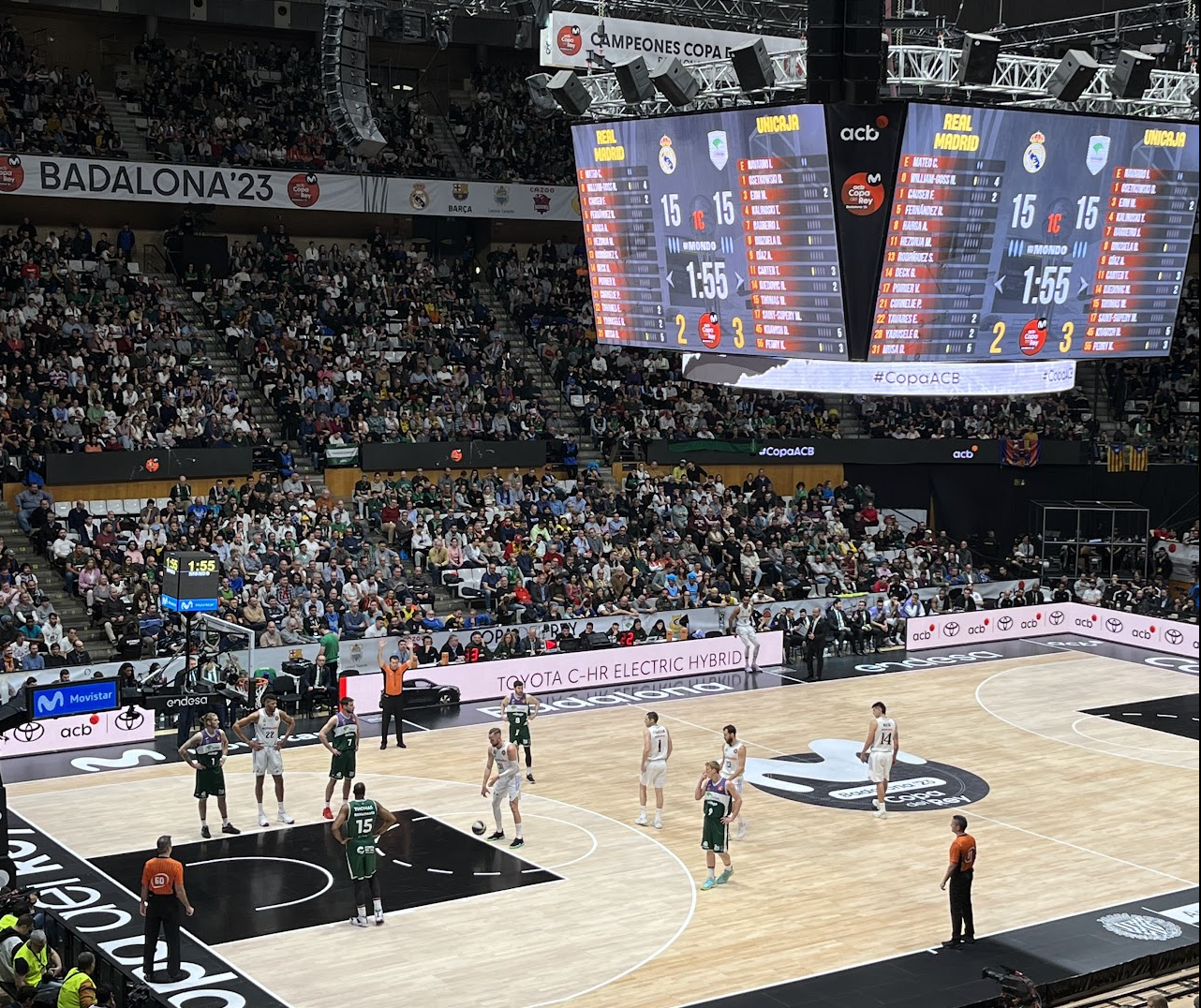
February - The Spanish Basketball Cup in Badalona.
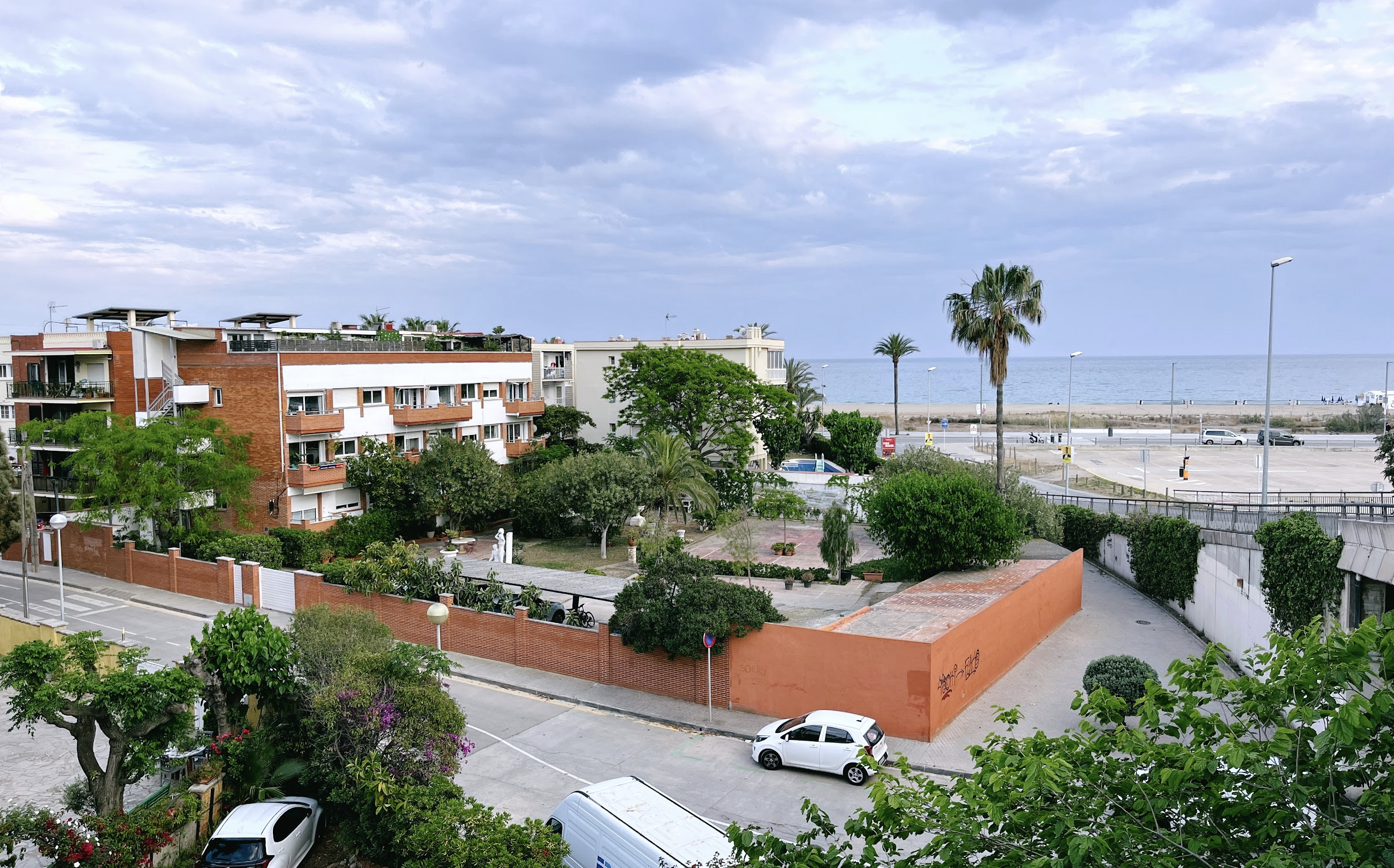
March - Moved to a new apartment close to the sea and Barcelona.
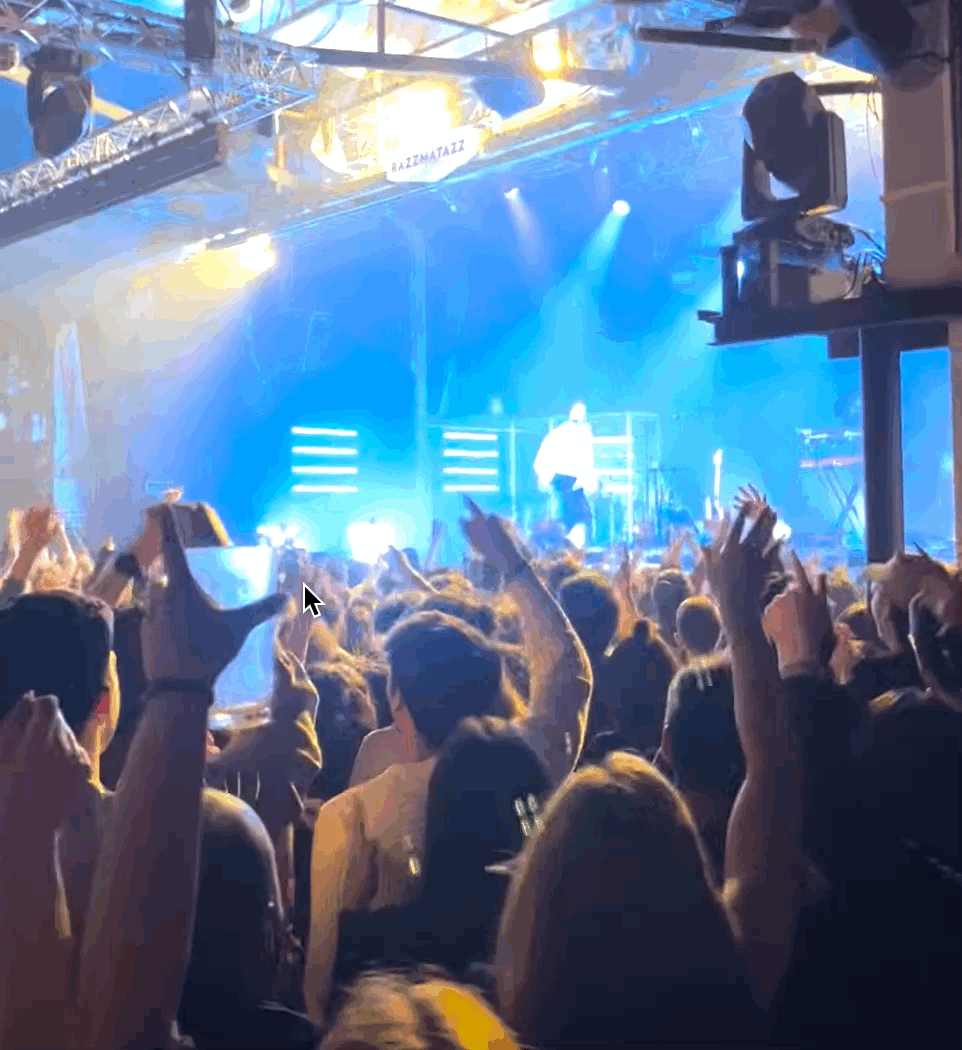
March - Alizzz concert brought the craziest night of the year.
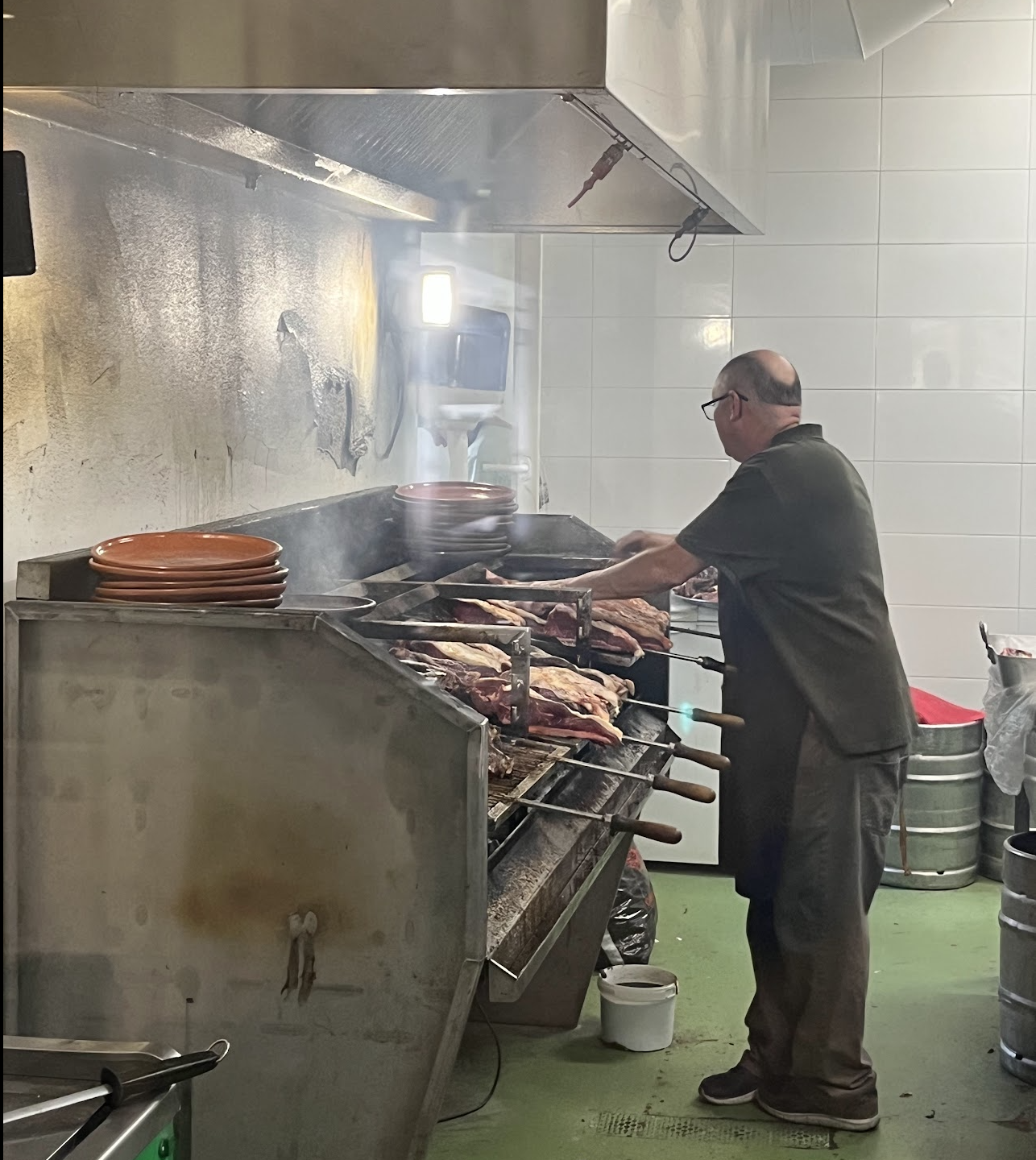
April - Yearly sagardotegi with friends.
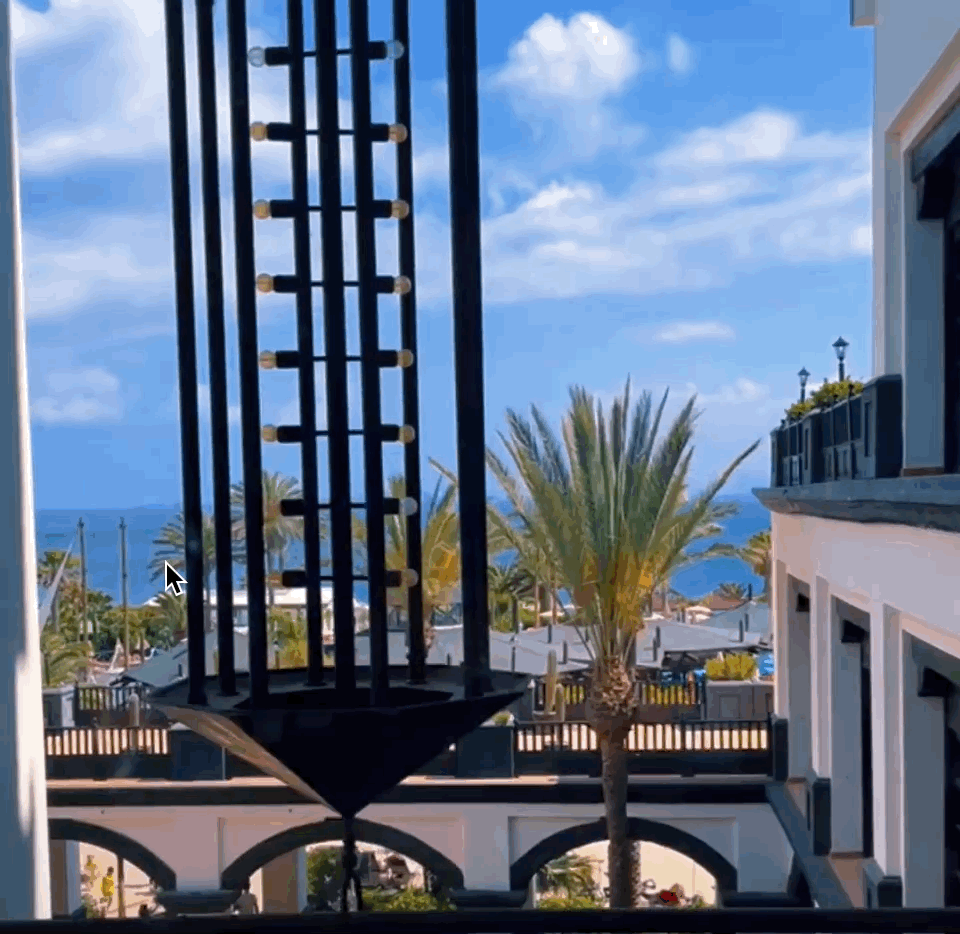
May - Tinybird company retreat in Lanzarote.
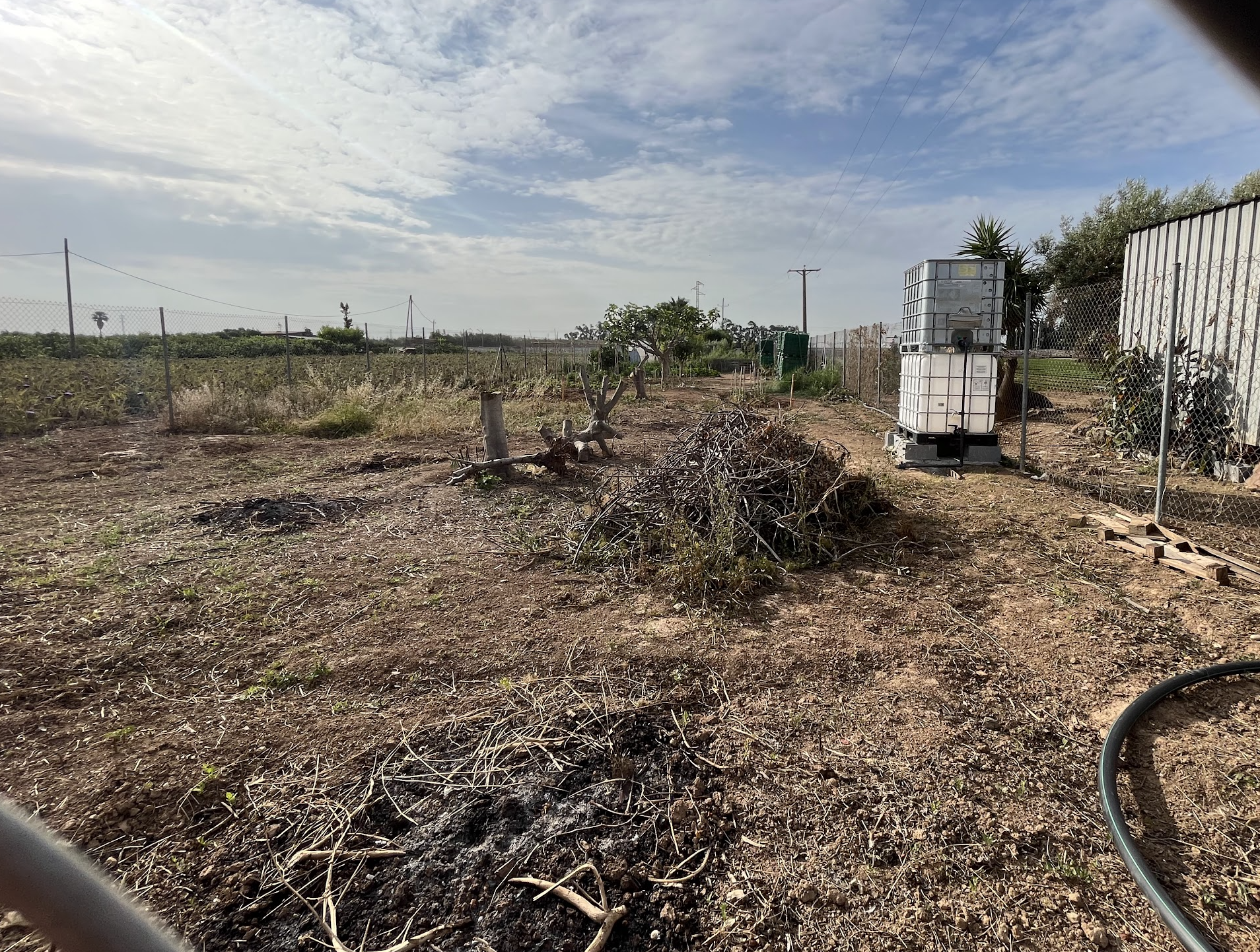
May - I rented a small patch of land to harvest my own veggies.
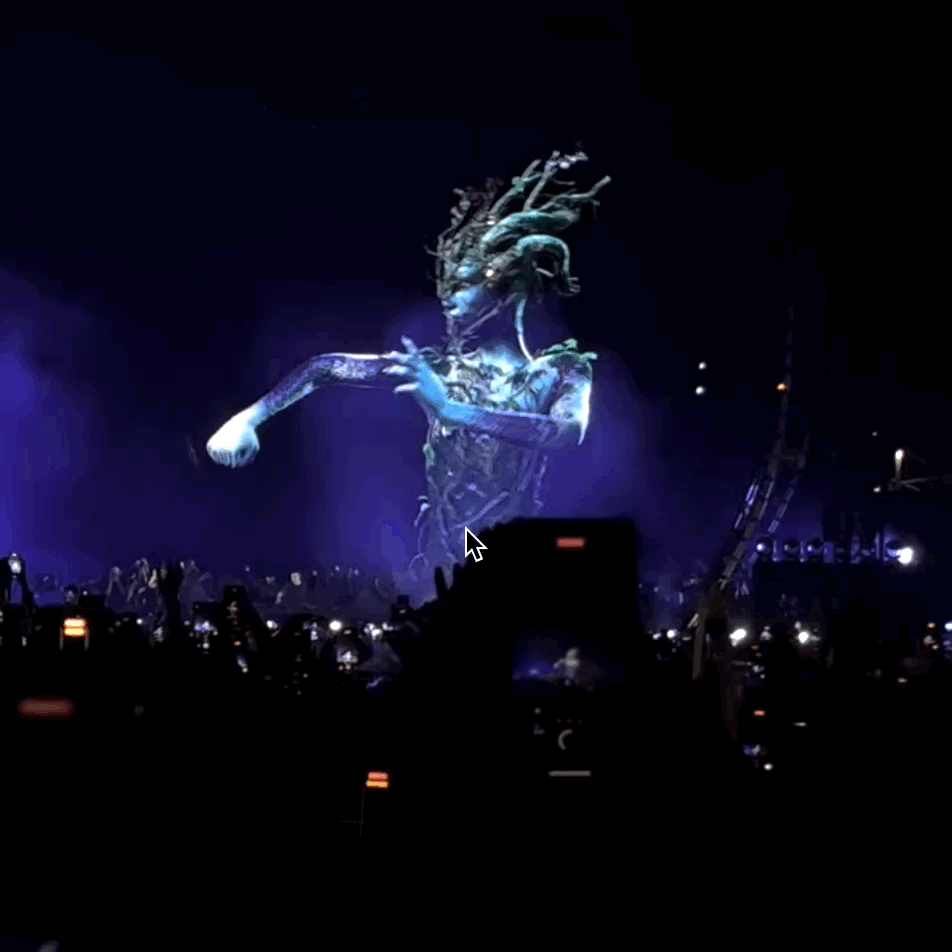
June - Music festival season: Afterlife (pic), Primavera Sound, and Sonar.
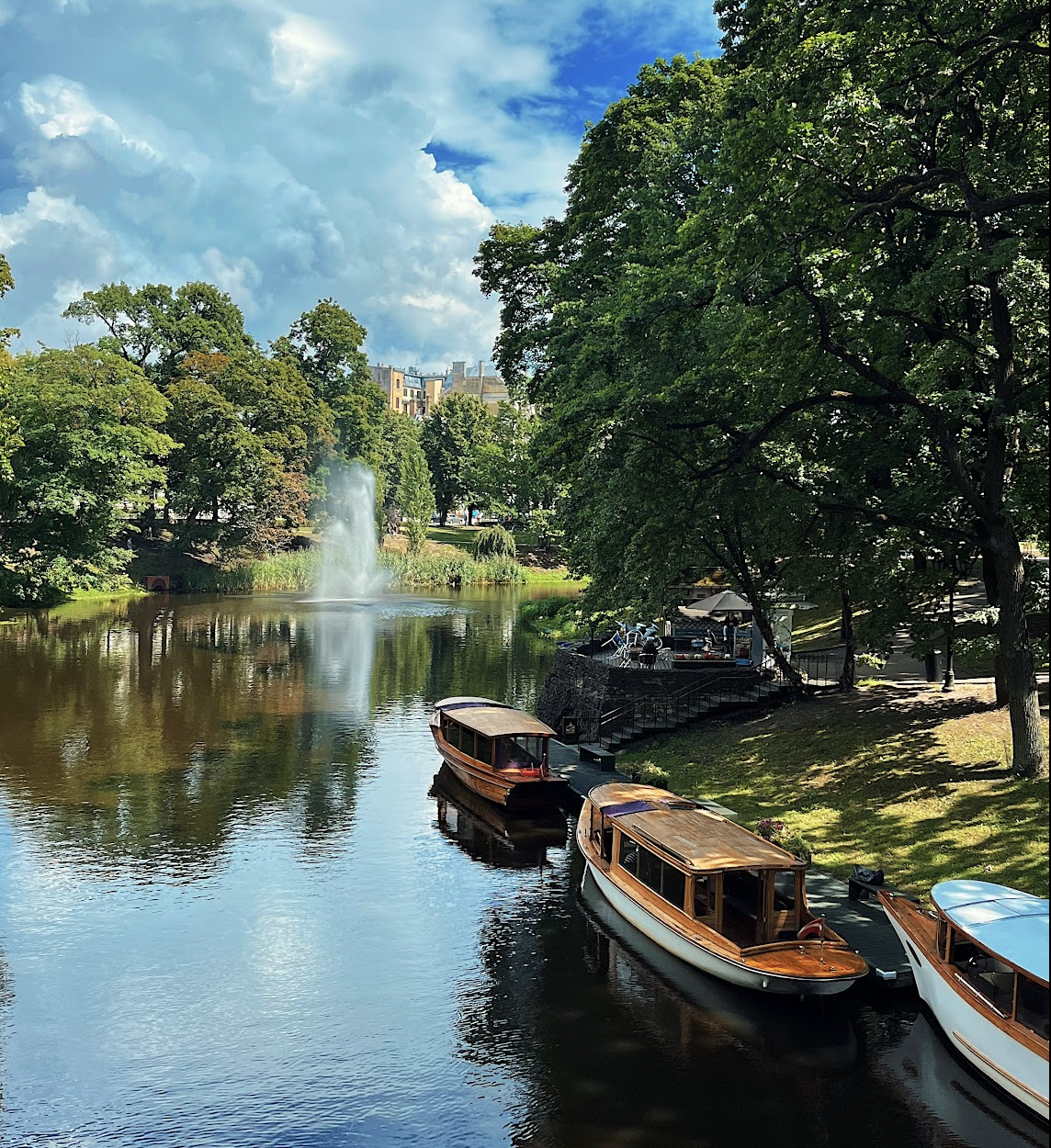
June - Trip to Riga (Latvia).
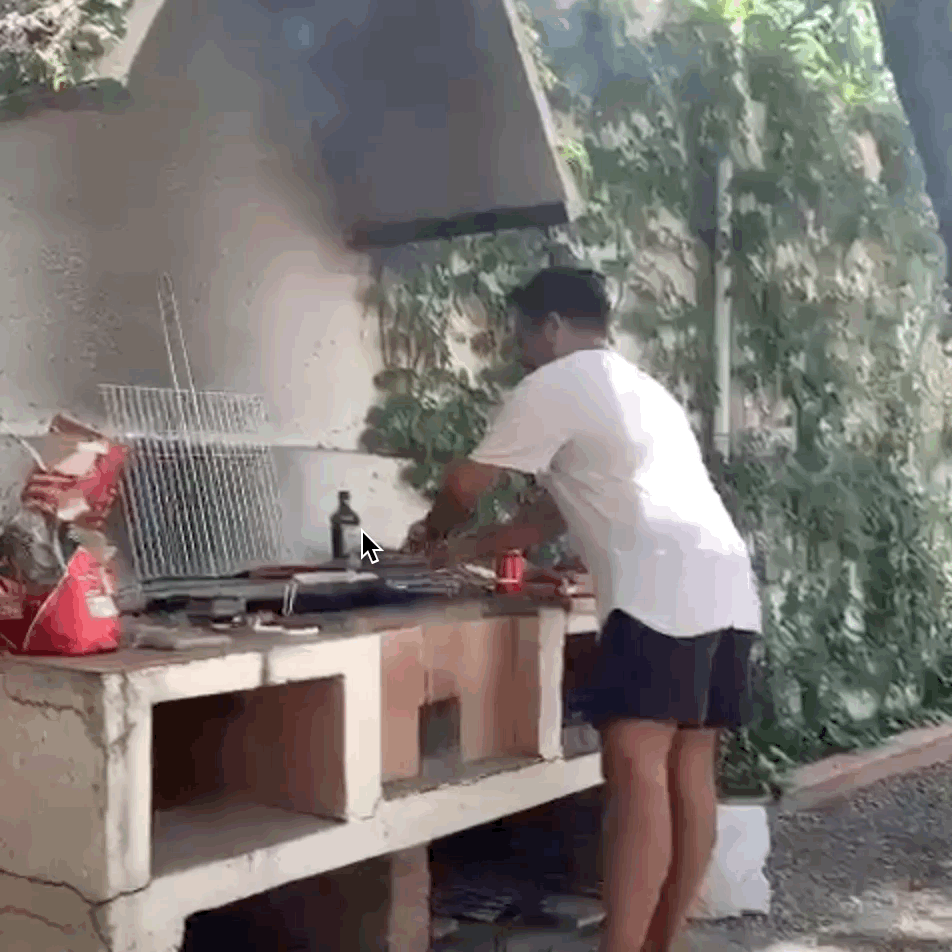
July - First barbacue at the new house.
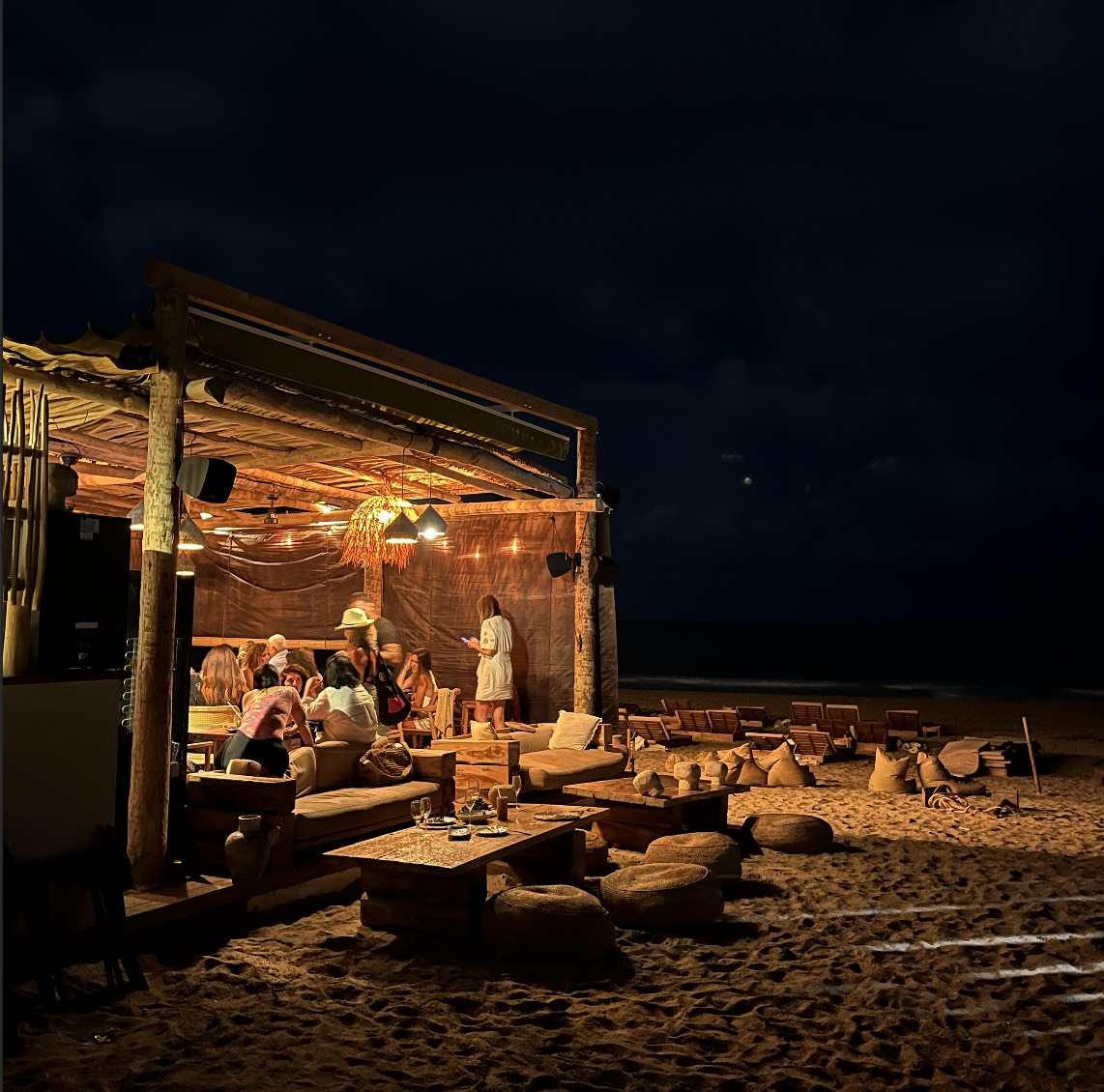
August - Met my favourite person of the year.
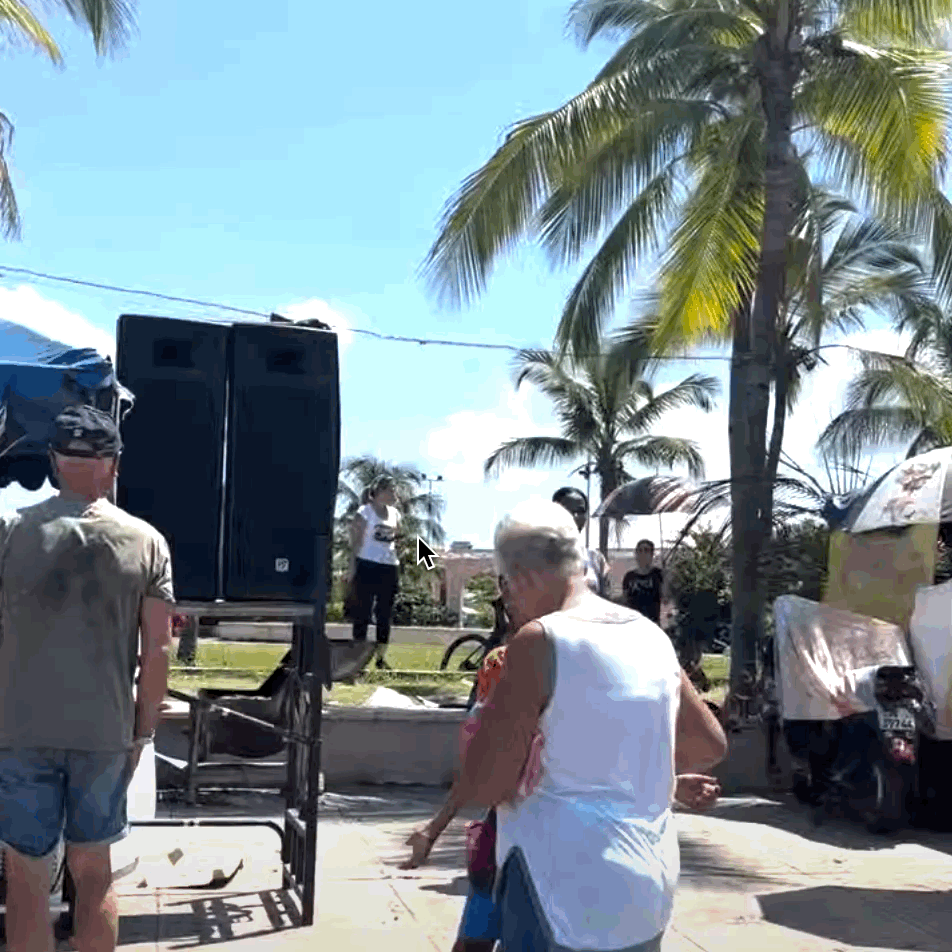
September - Trip to Cuba.
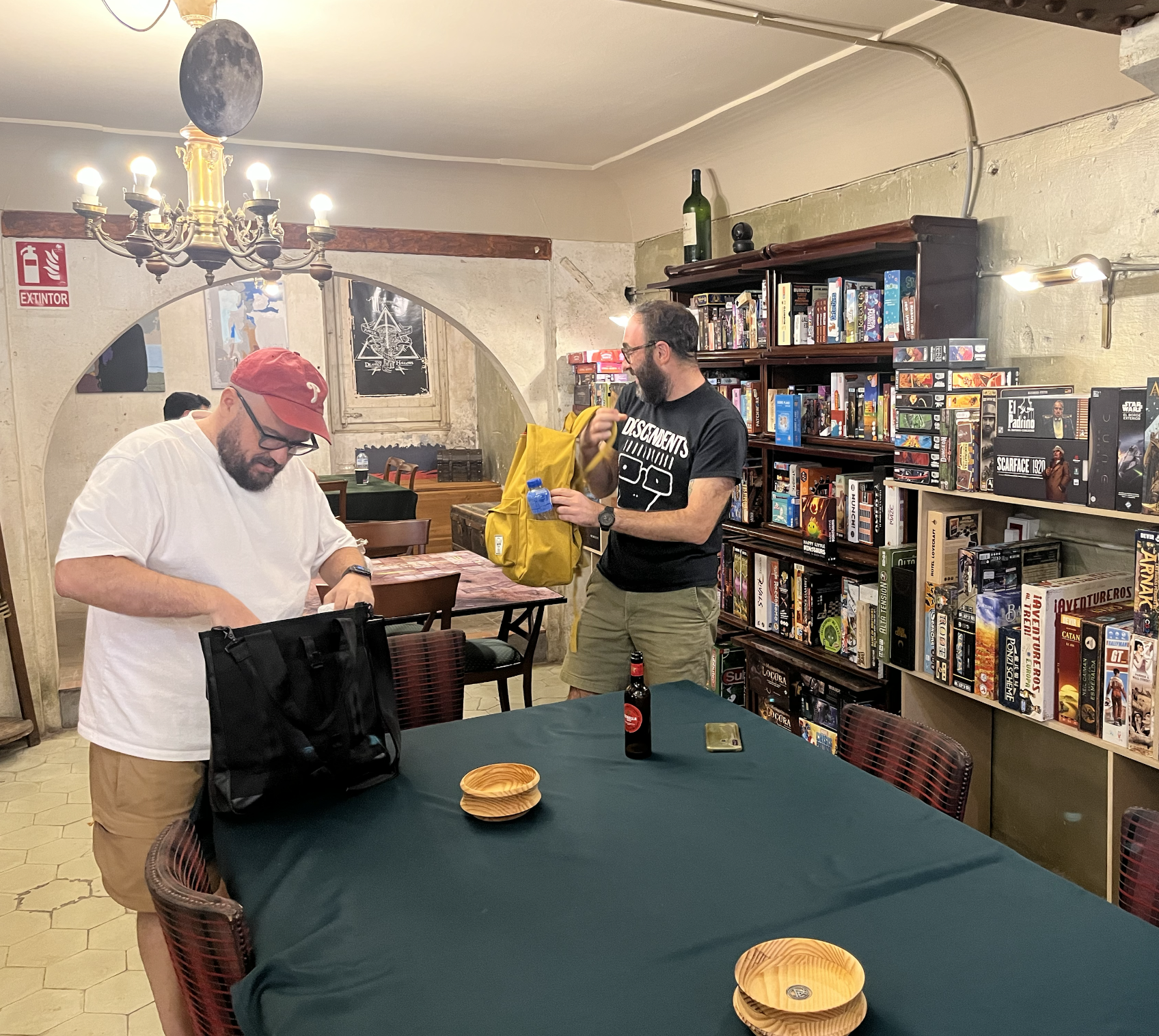
October - Started playing D&D again.
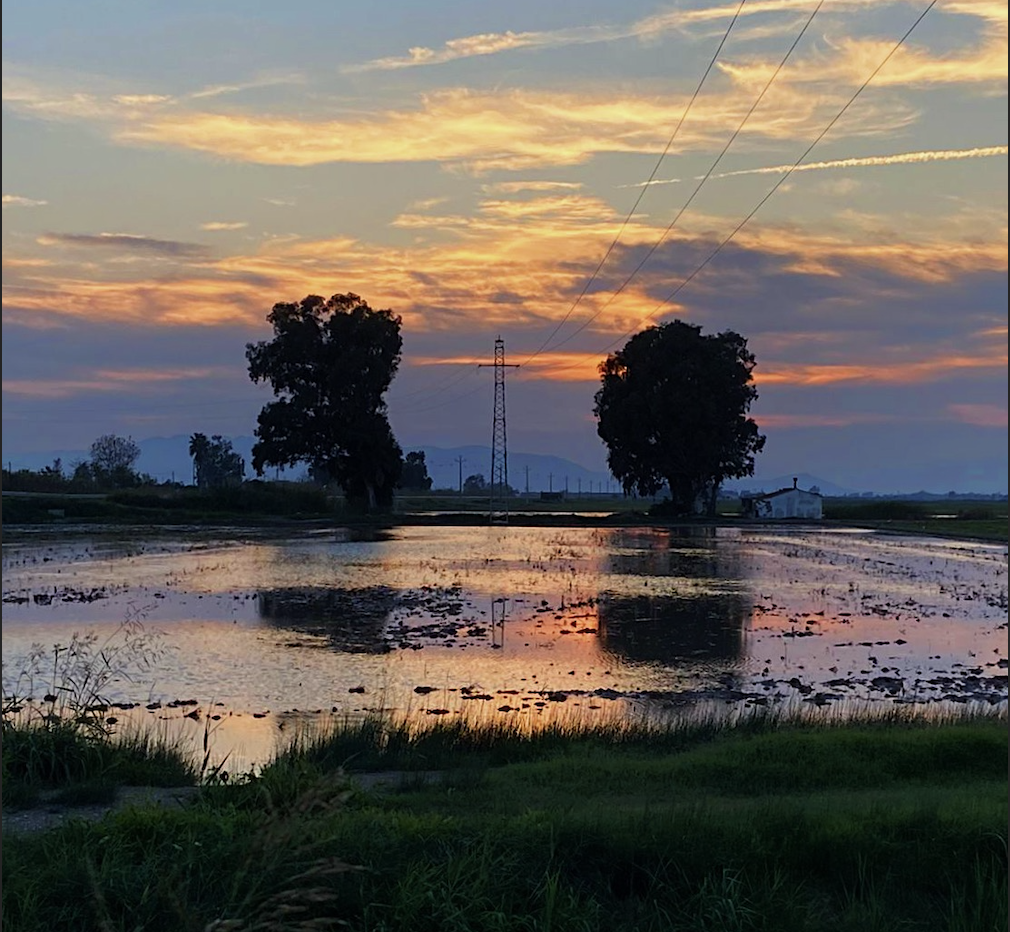
October - Some days off to visit Portaventura Halloween and Delta of Ebro.
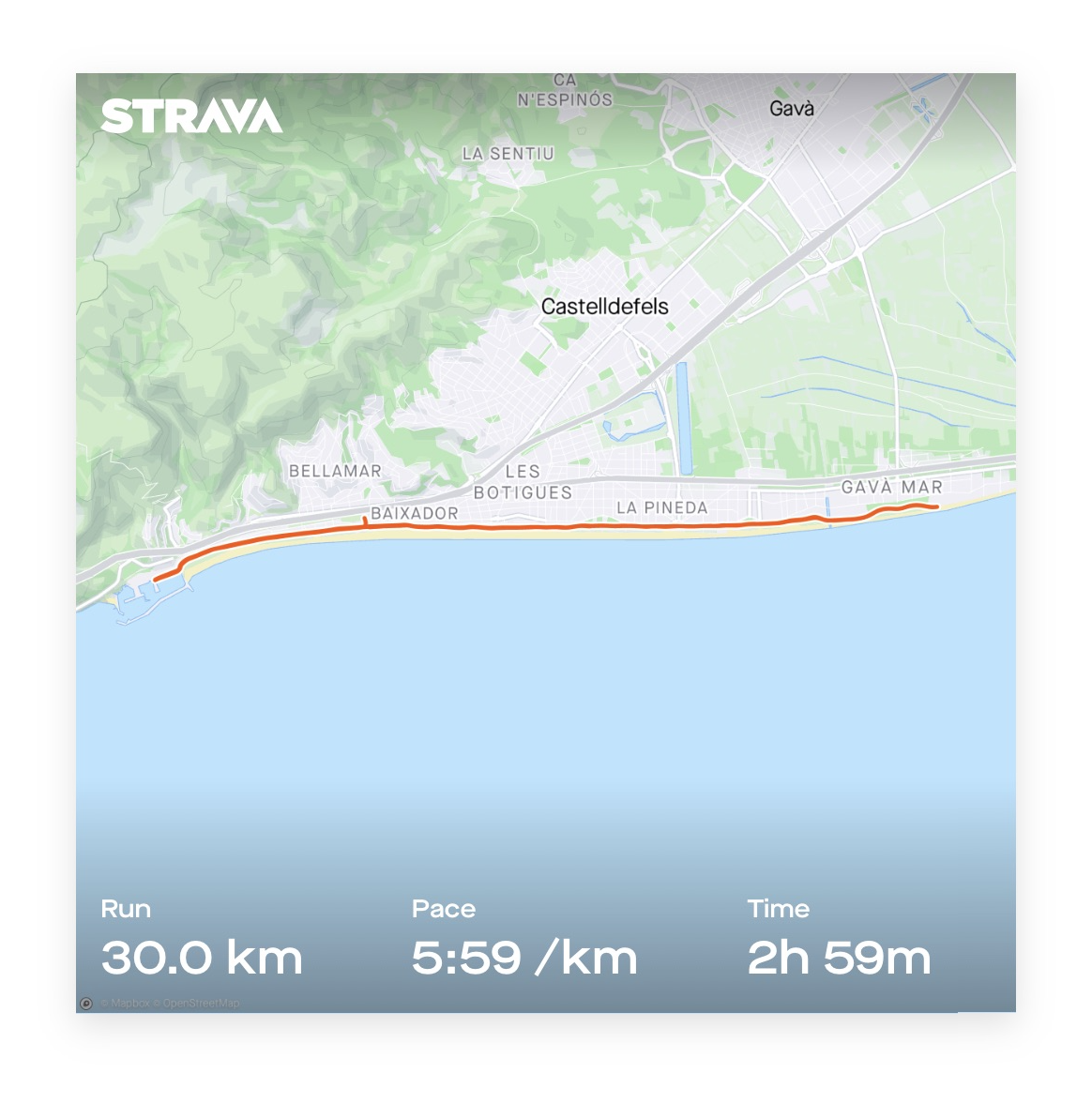
November - I didn't run the marathon, but I beat this year my longest distance running PR.
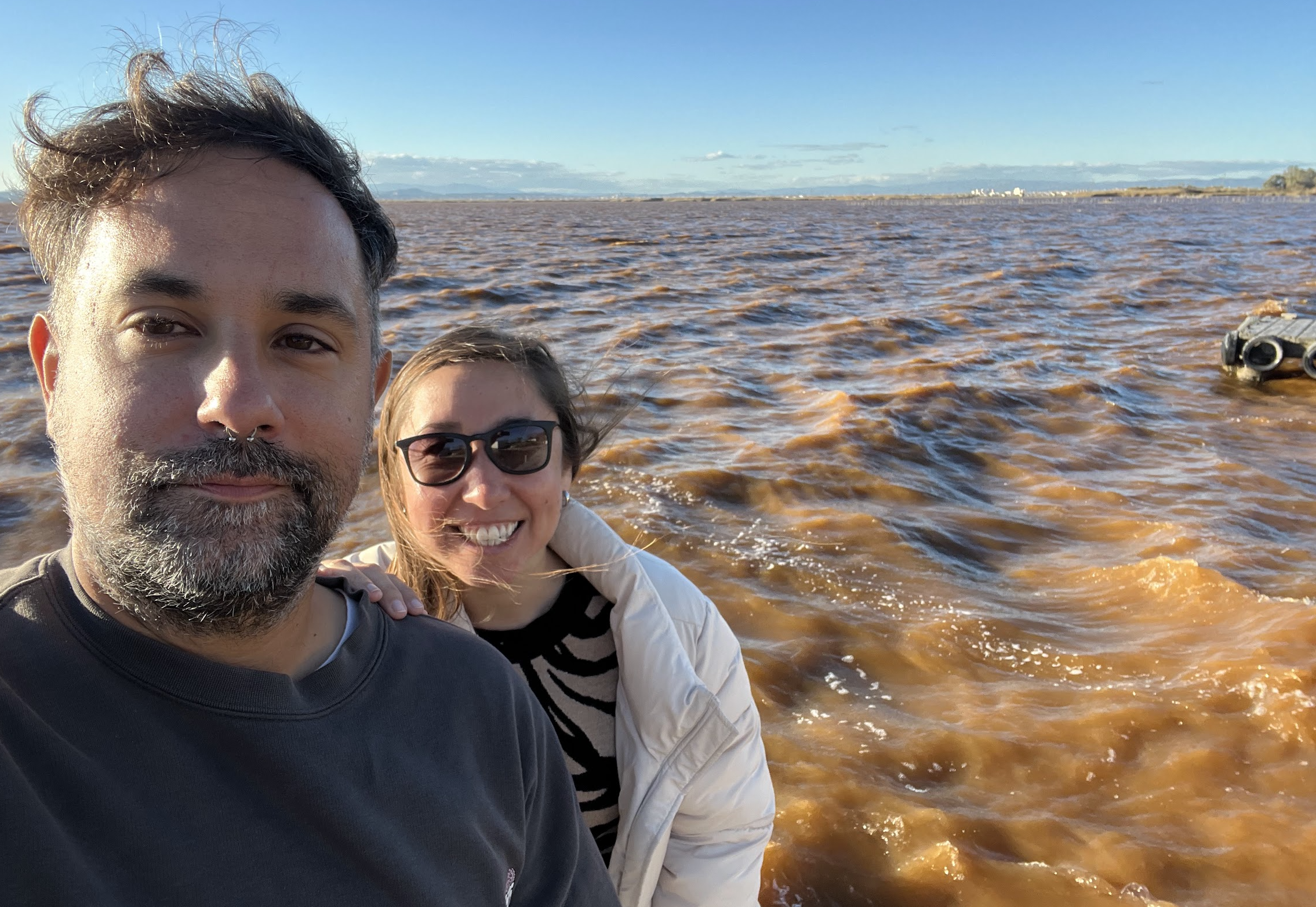
December - Visit to Valencia and the Albufera.
May 16, 2023
- 🧑🌾 I'm renting a 200-square-meter vegetable patch not far from home. I've spent the last few weeks watching YouTube agriculture videos and researching tools.
- 📚 I'm also starting a Data Engineer Camp in a couple of weeks. I have been learning on my own since I joined Tinybird, but I found a course with a modern curriculum, including dbt, ClickHouse, Snowflake, etc., with great teachers.
- 🏃 I'm running the Valencia Marathon this year. Two hundred days to get ready and try to finish.
Apr 15, 2023
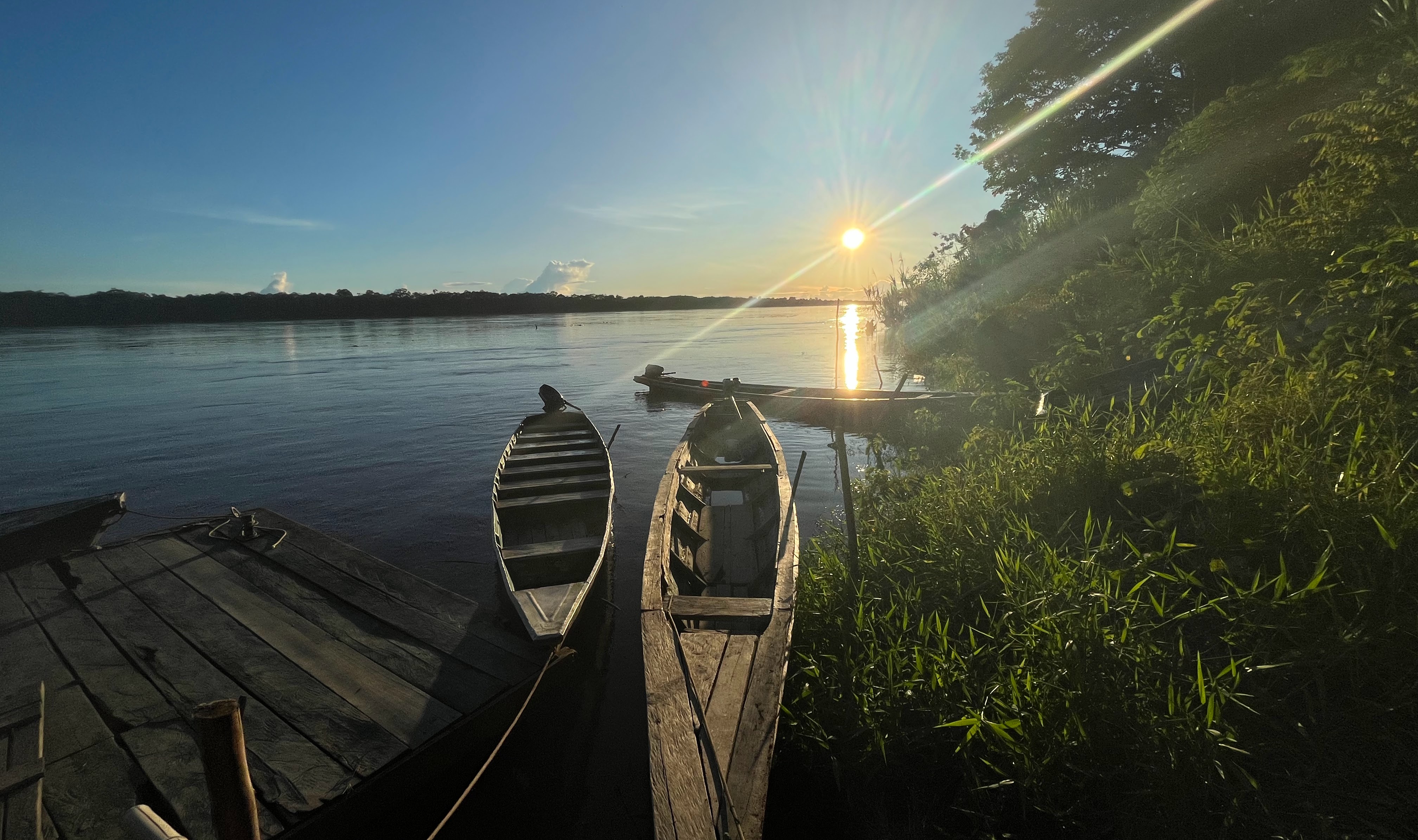
Not long after returning, I moved out of Barcelona center to a small apartment in front of the sea, 20 minutes by train from Barcelona. I lost the crazy amount of shopping and restaurants in a 15-minute radius (I will miss you, Italian Cheese store), but I took my first wing foil class today. I'm trying to live more frugally: spend less, go to fewer restaurants, and not have the pressure to spend every single public holiday in a new country. Nature makes it way easier?
Dec 31, 2022
Driving an electric car has been one of the highlights of the last couple of weeks. I loved it. Being able to drive with almost zero noise from the engine through a beautiful island full of sounds and volcanic rock feels different. Battery drains if you drive on +100kph roads, forcing you to plan your trip from one charger to the next. But driving it on an island with 70-90 kph roads makes the experience ❤️.
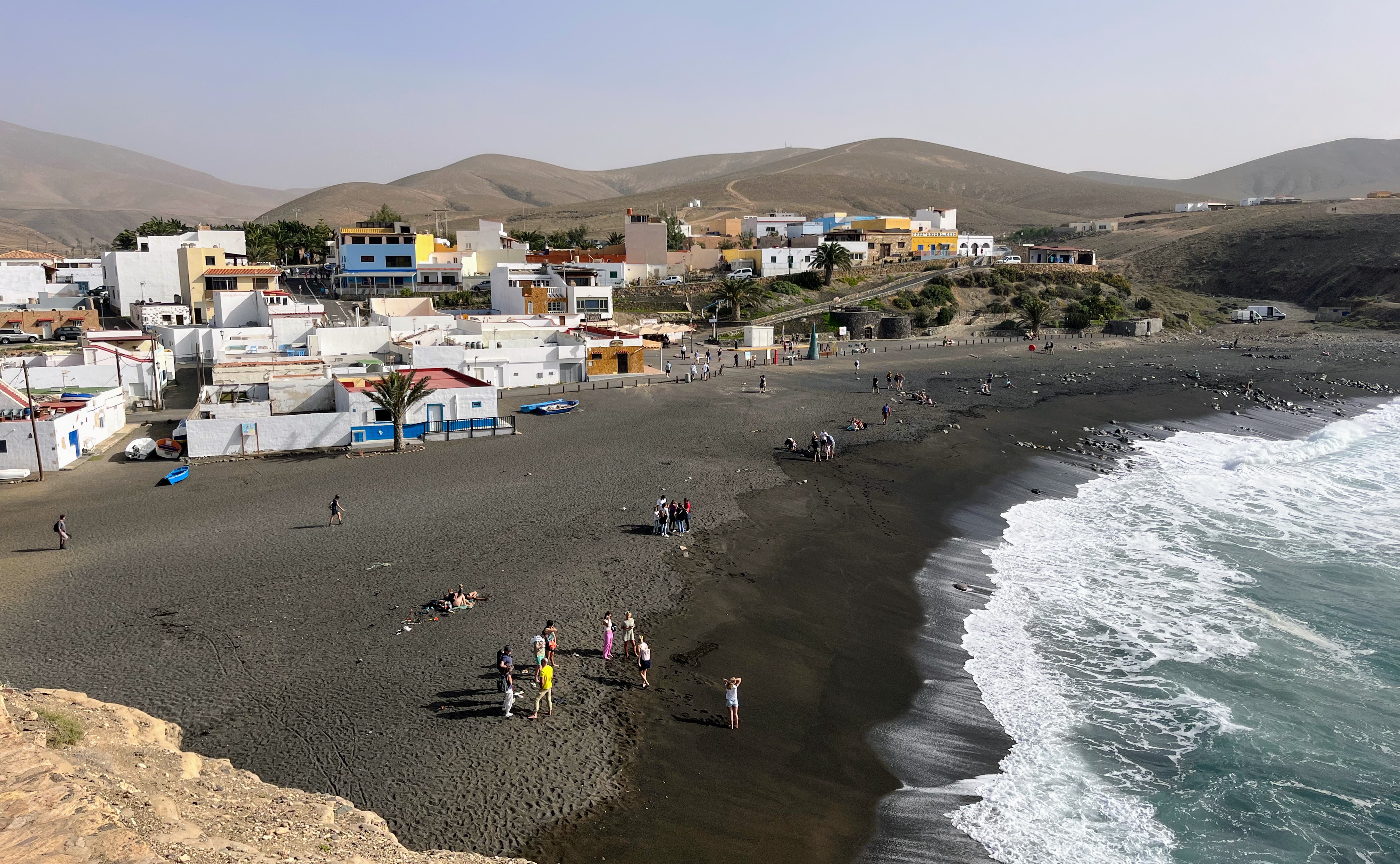
Today is the last day of the year. 2022 has been demanding but rewarding. The beginning of the year was quite stressful, with more than ten meetings per day between Europe and the West Coast. I changed roles mid-year from Senior Design Manager to Product Manager and companies from the +3,000 employees at New Relic to the 50 at Tinybird. My productivity stayed high, but I achieved a better work & life balance, and I got to finish the Javascript Full-Stack Bootcamp I started at the beginning of the year and code weekly for the last half of the year.
After two? years of pandemic, I also got back into the habit of discovering new places like Svalbard, Andorra, Boston, Amsterdam, and Sofia, also visiting some of my favorite already visited places like London, Lanzarote, New York, and Madrid.
I only have a few goals for 2023, or at least fewer than last year. Read more books and fewer newsletters, run more constantly and not only during race season, make at least a release of log.travel, and walk each day at least 10,000 steps (2022 has been brutal working from home).
Happy New Year!
Dec 06, 2022
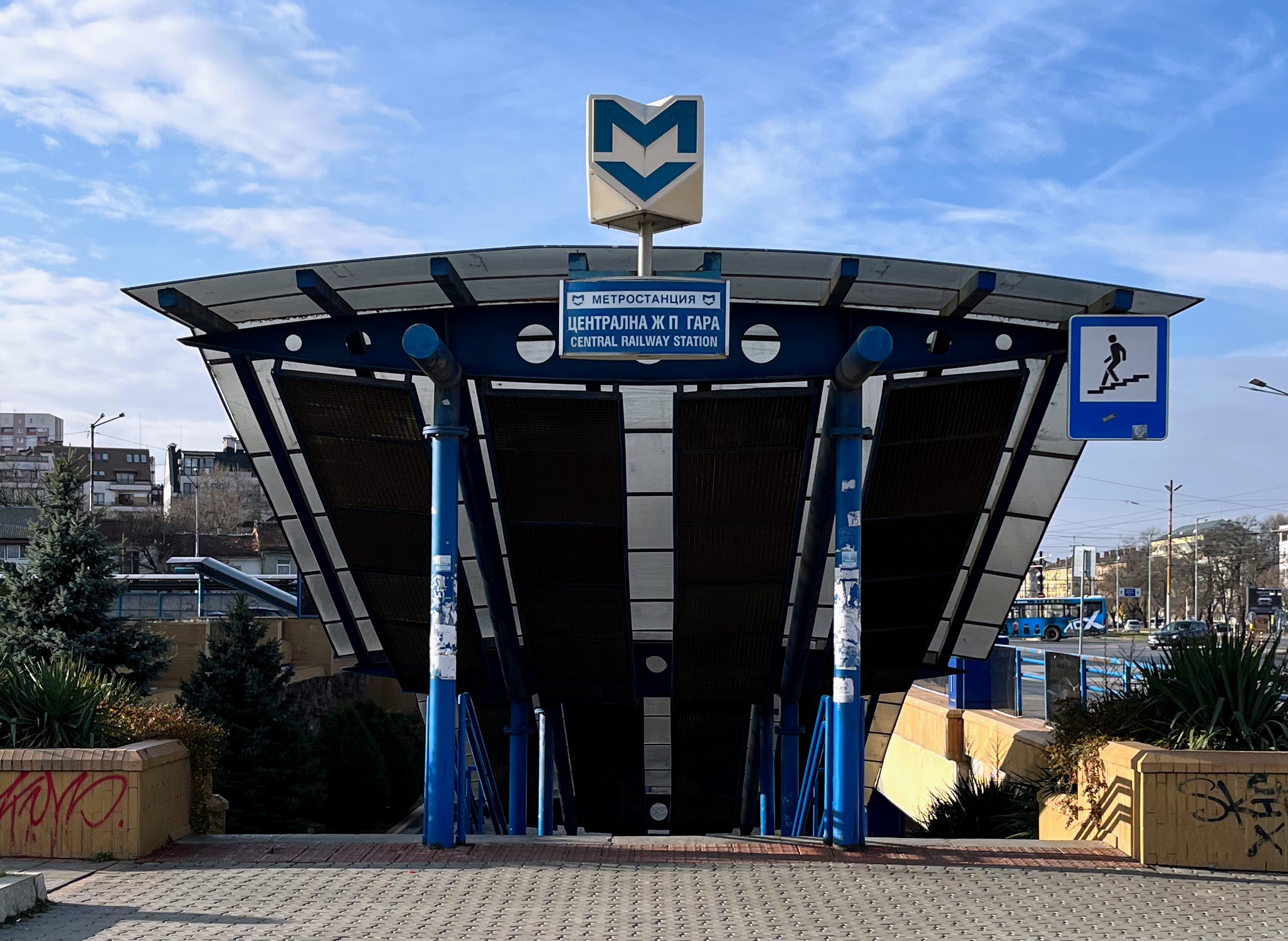
Nov 27, 2022
A ton of things have happened since the last entry two weeks ago:
- I visited London to attend Modern Frontends Live! That I guess that after all the complaints will never happen again. But it was a great trip as I could visit my brother and walk around Shoreditch and Limehouse, where I used to live a couple of years ago and missed a bit (even if I didn't get to buy any new CDs at Rough Trade).
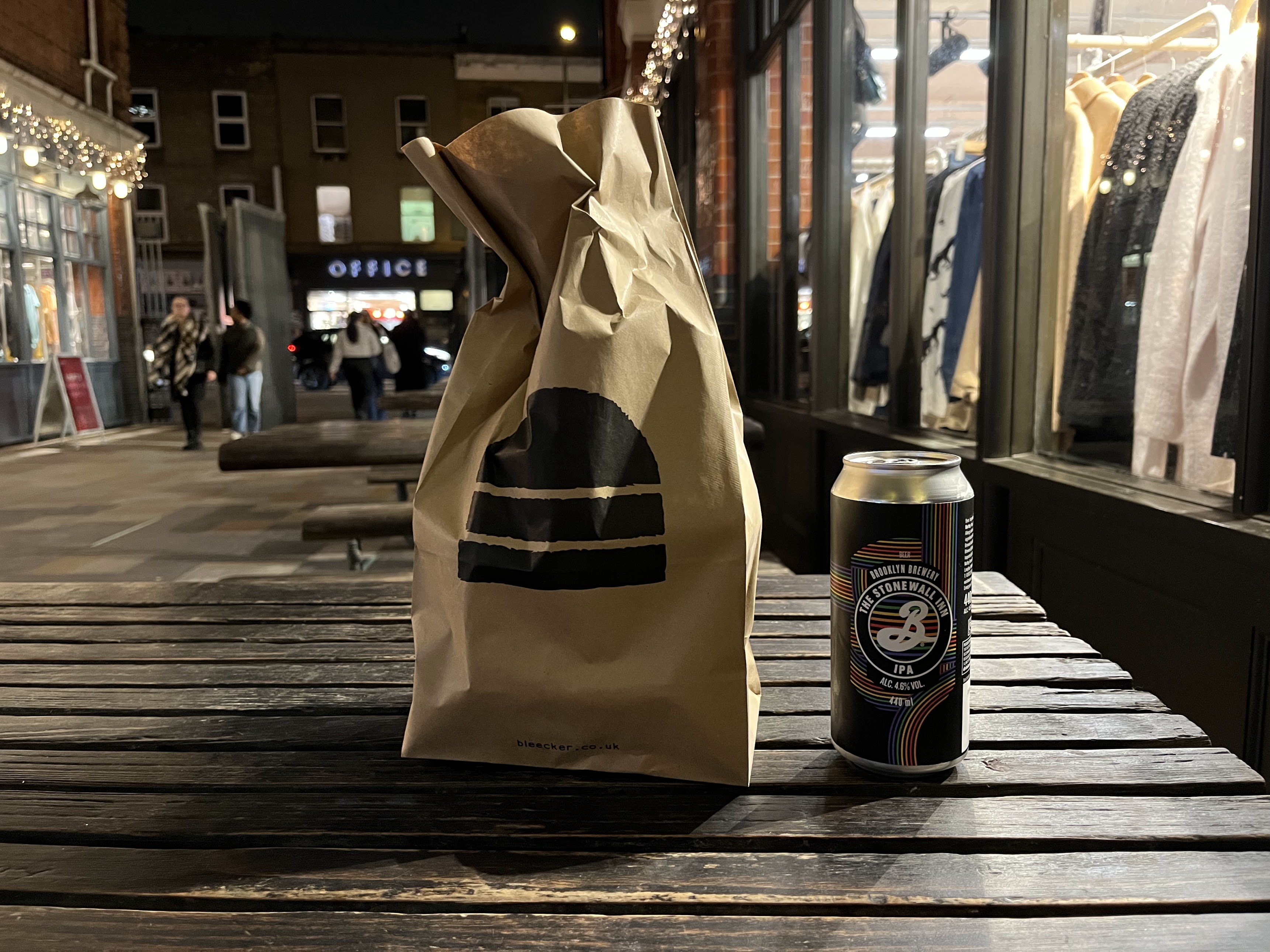
- There was a new reorganization at work with a more precise mission and a bigger team. Also, we kicked off a super exciting project around iterating with data that I have been defining for the last month.
- I have been trying Execute Program for the last couple of weeks to improve my SQL skills (I subscribed yesterday using their great Black Friday discount). After working quite a bit with DBs like Postgres or ClickHouse, I have to say SQLite has some interesting design decisions behind it.
- This is my last weekend at home for the next eight weeks. Next: Bulgaria, Madrid, Lanzarote, and Perú.
Nov 13, 2022
There are several wrappers that reverse engineer the API they used on the official page, so not perfect, but enough to play a bit.
The bad news is that MW2 is not available yet in the API endpoint.But I was able to get some of my horrible stats playing Warzone, like my 0.865 Kill / Death Ratio on 806 games.There are several endpoints with different data. For example, this is the response of the fullData endpoint in case you are interested.
Probably I'll wait until MW2 is available to start backing up my data in Tinybird. Meanwhile, I will think about what I could do with it: weekly averages, friends' rankings, or check the more performant weapons.
Nov 09, 2022
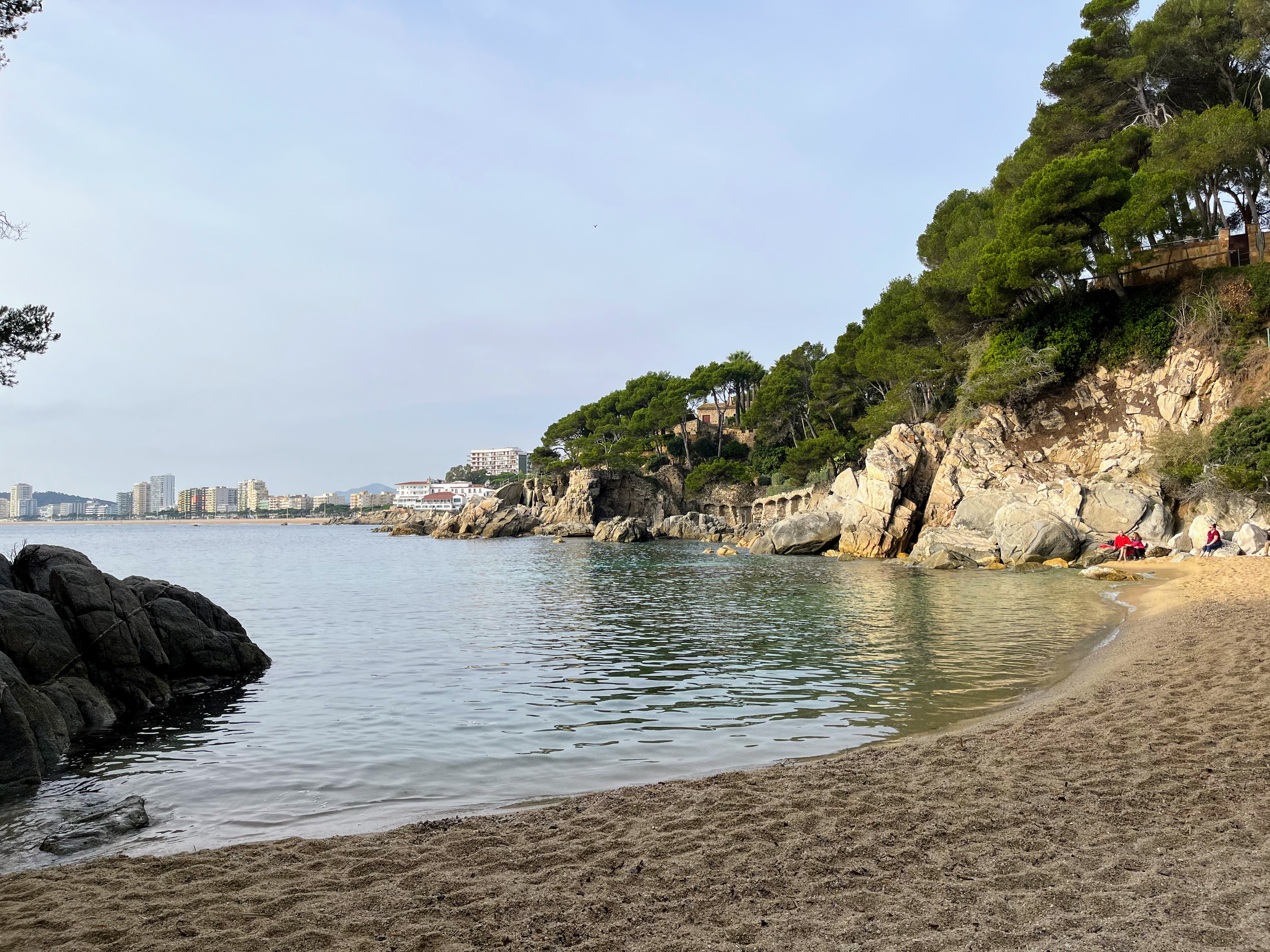
Nov 01, 2022
It may be a trend of living in a highly touristic place where tourist traps are expected, or it might be related to inequality and people with huge acquisition power residing in countries with lower wages.
Yesterday I paid 11.5 euros for a bread loaf. It was indeed a 1.2 kilograms loaf, but it was surprising when the rest of the bread at the store was priced between 1.5 and 4 euros.
A couple of weeks ago, I bought a 13 euros beer can. They explained that it was expensive because they brought it from Portland. I bought it because I thought it should be one of those fantastic west coat craft IPAs I miss a lot. But, never mind.
And during summer I spent +20 euros on a small cherry basket. I later discovered it was because we were not in season, and this was a unique seed of cherries that could grow out of season. They could have tasted better for the price."
Oct 01, 2022
I used click (plus tqdm for the loaders), which we use at Tinybird for the real thing, but it is also really easy to use it to fake some interactive commands.
Oct 01, 2022
I also spent some time working on this site while learning React/Next.js. I'm working on a Photos section using S3 + Prisma + Planetscale. Probably a bit overkill for my needs, but I wanted to play with S3 buckets.
This brings me to work. We worked hard at the beginning of the month to build a web analytics product on top of Tinybird. The first use case we productize. I wrote a thread in Twitter explaining it a bit.
Aug 28, 2022
Aug 21, 2022
Fly the Thursday night. Work from the hotel on Friday. Spend the weekend walking and exploring. Come back home Sunday night (at least if this flight stops getting rescheduled).
As I recently changed jobs and was not going to take a break during July and August, I decided to make a short trip to Amsterdam. Probably the place on the top of my list of "how the fuck I haven't been there yet?".
Every time I travel to a northern Europe city, I always ask myself how it compares to Spanish towns. Every time I do, I feel that in Spain, people have to make an extra effort to create cities designed to be utterly dull and make them unique. Not a cute random sandwich place run by an old couple in the middle of nowhere. Not a scrapyard with some sketchy decorations and big tables to have a drink with friends while listening to some music. Not that old warehouse where startups could create their space and artist could do their thing (NSDM). Not that old dentistry school building transformed into a place with the classic European mix of food, drinks, and hard-techno parties (Raidon).
That's more uncommon in Spain. Poblenou and other neighborhoods might have some interesting spots here and there, but it looks like we have a rush to make our cities denser and less forgiving. No chance I could open a small taco bar with some electronic music in the corner of the three chimes old-factory in Barcelona.
Some random notes about these three days in Amsterdam:
- - I feel that nowadays, there are more weed clubs in Barcelona than coffee shops in Amsterdam. In Amsterdam, they are more visible and accessible doh.
- - It's 2022, but some places in Amsterdam have problems with Visa and Mastercard. Credit cards are not popular in the country, but Visa Debit doesn't work either. I'm not talking only about small establishments. The most popular supermarket chain in the city, Albert Heijn, doesn't accept them, so you get 20 auto-pay terminals empty and a long queue for the only cashier. First time after many years, I heard someone mentioning Maestro.
- - Too many bikes are abandoned on the streets. I was surprised that there were almost only two types of bikes. Or you have an old comfort/city bike or a Bird/Vanmoof electric one.
- - Vegetarian food was terrific. I always asked if veg restaurants flagging themselves as vegan/vegetarian was not backfiring them. I'm sure many of my non-vegetarian would love some of the places where I have lunch, but seeing "vegetarian" will make them skip it. This was the first time I found a place to test my hypothesis, Madre. I had to check online to know if it was only veg. I have some great Birria Tacos, by the way.
- - Sometimes I think that fake meat brings an inevitable change in food consumption patterns, which is quite visible in some cities like Amsterdam or Barcelona. I had dinner at a vegetarian burger place in a very touristic street that was full while the steakhouse in front of it was empty (observer bias, I know).
This is a longer update than expected, but the flight was delayed 2 hours, so I had plenty of time.
Aug 15, 2022
Oct 11, 2021
It's been a relaxed week. I didn't do many new things: a bit more time at work to push for some initiatives, some time taking care of my partner's cat, and time to visit my hometown for the first time in the last six months. I've spent most of the weekend going out for lunch with friends and family. The rest of the time, I've revisited my newsletter subscriptions.
I've unsubscribed from a bunch of free newsletters I never have the time to read and subscribed to some paid newsletter that looked more interesting. It all started from this great article by Shawn: Eating the Cloud from Outside In; that Asier Adri shared a couple of days ago. It made me notice I was not doing it well if I was reading so much about Facebook and so little about this type of content that is more appealing to me. So I've spent a bunch of time reading and managing my subscriptions. Don't expect a huge list, but these are the newsletters I'm subscribed to right now:
- • SWYX. I guess the first things was suscribing to Shawn' newsletter :)
- • Dense Discovery. This has been part of my inbox for a long time: Technology, Social, and Design links and texts.
- • HEATED. About Climate Change and how we can do better. I've been subscribed for a couple of months, and I think this is the topic where I would love to improve most and be better informed. Any recommendations?
- • De Ulm a Cadiz. I like to read from time to time Javier's personal reflections about the relation of daily details with the bigger world.
- • Console. A weekly list of links of dev tools. I subscribed a couple of weeks ago as it's an area where I was lacking knowledge.
- • Bring the Donuts. Ken Norton barely writes anymore, but when he does he shares some interesting insights about how products are built on American companies.
- • (Paid) Lenny's Newsletter. For me, one of the best continuous information sources out there related to how to buil digital products, from a PM approach. I subscribed some time ago and let it go because I didn't have the time, but I've seen myself several times clicking on Twitter to links to his articles I couldn't read anymore.
- • (Paid) Chinese Characteristics. This is fucking expensive: $35 per month. It's a newsletter about deep-dives into Chinese Internet companies. I read some of the open articles she has about the chip crisis, and they look amazing. After subscribing, I read a long analysis about Xiaomi's evolution, and I think the 35 five bucks might be worth it. Testing for a month and then deciding.
- • (Paid) The Pragmatic Engineer. Articles about Management and processes. It resonates a lot with my day today, so here it is.
I also got tickets for a Boiler Room in December in Barcelona. I don't think I'm prepared to party from 23.00 to 06.00, but I've spent so many hours watching Boiler Room Youtube channel for many years and it has been part of my day-to-day cheer-up during the Lockdown, so I couldn't skip it. That should at least try to compensate for the John Hopkins concert at the Auditori canceled a couple of days ago.
My Brompton Electric battery struggled a bit last Thursday. It's disconnecting while I'm riding. I read the Electrics have this kind of issue, but I need to investigate more. Even if I need to change the battery, it would be the best thing I bought during the last couple of years. I cannot see an urban future where electric bikes are not at the center of the mobility options.
And on a short note, nothing super interesting. The new Battlefield beta was weak at best. I'm hiring some designers in the US (that usually is a super slow process) and a UX Engineer in EMEA. I'm starting to plan how to spend the ten days off left I have this year. Kilimanjaro summit is probably at the top of the list, but I cannot do it solo, so $$$. We have a great Product Offsite (virtual) at work. This week they are opening (finally!) the office. It's not mandatory to go as we have remote/hybrid/on-site contracts, and we can ask for a change, but I cannot wait to go one or two days to the office.
I am now going for a run. I have a half-marathon in less than two weeks, and I haven't run in the last two. Good luck to me.
Oct 04, 2021
It's been a long time since I read a personal blog. The Internet I have refined around me during so many years is not more than a mix of a weak professional network from where I get some trends and a collection of pictures when we show the best of ourselves. Do you remember personal blogs? Fotolog? Those were cool tools everyone around me used.
Last week they announced this year's Design National Awards. It's great to have people you know like Danny Saltaren, or Isabel Ludita the previous year, as the winners. I never told anyone, but the Photography one has been, since my teenage years, like the goal that I know I'm never going to achieve. Huge respect. Talking last week with my partner about it, she asked me a simple question that has made me think a lot during the last couple of days: what is your piece of work as a designer that you feel more proud of?
It took me a lot of time to answer. My first take was: none. Hey, it's hard to think that you don't feel specifically proud of any of your work during the last 12 years. I worked on really complex projects, and the pace of the tech industry puts you far from how what you do improves the user life once is released. Also, doing more management than craft during the last couple of years didn't help as the impact is more about creating environments for people more than ownership of delivery.
After a couple of minutes, I said: "I think it is Globo. A project where I spent two months in Rio, and with a small team, designed something still being used (and brought years of contracts to my former company). It was for one of the biggest media companies in the world where I got the chance to design for Big Brother, the F1, technology, soap operas, or almost any information and entertainment thing you can imagine. Delivering a good experience from rich people with the last iPhone to the worst feature phone you could find in a favela".
That was almost eight years ago. Is my best work so far away? I enjoy my job most of the time. There are places like Tuenti or Funky Projects where we had strong design teams, and we run some experimentation and push forward one to each other. I loved that. But it's proudness something I feel?
I decided to start every week writing during an hour a reflection about the previous week and post it here. Something not very intellectual or well-rounded but more personal. Also, I'm going to spend some time working on a good personal site. Right now, I do only crappy portfolios once I decide I want to change jobs. But could I do something good if I removed the enormous constraints of working at big digital companies? Last week I moved this site and the .work to start using Cloudflare (Pages), so I think it's good timing. Thanks, Asier, for the recommendation.
At work, it was a tough week, not going to lie. October pressure to deliver is here, and we have advanced a lot with the hiring during the last couple of months, so now we need to start improving how we work, which brings some considerable debate among Leadership about things like the expectations about a Design System, the roles of the designers, or ownership and quality.
We also soft launched Instant Observability. The first big project we delivered that I've been part of. Good to understand how we push projects from idea to market in 4 months and how design is involved. Not perfect, but a lot of learnings about working with little design and many PMs and decision-makers.
On a less boring note, I visited two excellent restaurants in Barcelona last week. Dos Prebots is a restaurant I think created by one of El Bulli's chefs. Great mid-week dinner with friends. The squid a feira was terrific. We also went to Quinoa, a tiny vegetarian outlet at Gracia. We tried to visit when Evasan and Boton came to Barcelona a couple of weeks ago, but it was packed. The Bánh mì was awesome.
We also went to watch the last James Bond movie, Not Time to Die. A Bond movie, so I don't expect anything profound but a great 3 hours closure to the Craig era. I also spent some time trying the beta of the new Halo being released by the end of the year. Great multiplayer, but I keep finding myself spending more time playing Splitgate. It has some old Unreal Tournament vibes that I love.
50 minutes writing. I think this is more than enough for the first week, and I'd need another 10 to check that I remember how to deploy it, haha. It looks like last Tuesday morning was the last beach day for this season here in Barcelona, so more time to focus this week on online projects.
Jan 16, 2021
The Culture Map: Breaking Through the Invisible Boundaries of Global Business
Erin MeyerThere were several books I read this year that made me reflect on some personal past decisions. The Culture Map was one of them. It helped me to understand better the different expectations people have at work based on their culture. It's without any doubt the book I enjoyed the most this year.
The book is full of little stories about work situations where diversity caused some struggle. Meyer perfectly explains each participant's context and real expectations, giving some cultural background and how it suggested their clients to unravel those. For example, they talk about how some cultures expect the boss to make the call. Then she proceeds to explain how some other cultures have a more horizontal approach but differ on how fast the decision is taken and how much flexibility there is once the decision is made.
There are hundreds of topics and real examples like this in the book. If you work in a multicultural company or you want to understand how other people may think based on their cultural background, this is a must.
Practical Empathy: For Collaboration and Creativity in Your Work
Indi YoungI wrote some words about this one last month.
EMPOWERED: Ordinary People, Extraordinary Products
Marty CaganOK. Officially I didn't finish this one in 2020, but who cares.
EMPOWERED is an enjoyable continuation by SVPG to their digital product bible: Inspired. It could be more or less deep based on your experience working on mature digital product teams. Still, if the first one was a must, this one is an excellent continuation focused on building and managing strong product teams and making them grow.
The Ride of a Lifetime: Lessons Learned from 15 Years as CEO of the Walt Disney Company
Robert IgerNot every day you have to convince your company board or Steve Jobs to buy Pixar. Or follow your shopping spree with Marvel and LucasArts. I don't have the money or the power, so I only got some gossip and anecdotes.
The Great Mental Models Volume 1: General Thinking Concepts
Rhiannon Beaubien and Shane ParrishI was not too fond of it. I got a strong reaction against it when I first read it as I felt it was some human behavior bullshit for tech people. Mental models are an exciting topic, but I think it oversimplifies them, and talking about them without context is not acceptable. Trying to talk about magic formulas about how people think requires a bit more.
On the other hand, a couple of friends enjoy it, and I'm not even close to being a human behavior expert.
Patria
Fernando AramburuI read this one just before HBO released the TV show to avoid spoilers. I mean, maybe spoiler is not the word for something I experienced during my youth.
It was a hard book to read for me. It made me notice some behaviors I had while I was a teenager that I never before stop and think about them as an adult. It made me reflect on my views about violence when I was younger, and things look a bit less severe than they were.
Nevermind, it opened during this Coronavirus-centric year a ton of interesting conversations with my friends about the Basque Conflict without the strong opinions brought usually by the news.
La sombra del viento
Carlos Ruiz ZafónThe book I read the fastest this year. I started it just when I moved to Barcelona, and the story and the places made me imagine the city and its people in the past. I loved it.
El juego del Ángel
Carlos Ruiz ZafónThe second part of the book above. I hated it.
Ensayo sobre la cegera
José SaramagoProbably this year was the one where I read more non-fiction or non-work-related books. It took me way too much to finish it, but it was recommended to me by someone special, and it would make a fantastic apocalyptic TV show if you ask me.
The Darkest Forest
Liu CixinThe Dark Forest is the second installment of the utterly popular sci-fi trilogy that I hope to finish this year. A lot has been written about these books. It's a must.
You Don't Know JS Yet
Kyle SimpsonI took several months off this year to study and travel (perfect timing). One of the things on my list was learning a bit more about JavaScript. I read some of the books of this collection and made some courses and projects. "Projects."
Books I read more than half, but I didn't finish.
Thinking in Systems: A Primer
Donella MeadowsThis was one of the Factorial Book Club reads. One of these books that explains super exciting things but made my eyes start closing after a couple of pages. It explains how systems work and their different interconnections. How changes in one place could push significant changes somewhere else. Super exciting stuff, so it has to be how it's written, my attention span, or probably using the same glyphs over and over.
A Promised Land
Barack ObamaI bought it an audiobook because Obama narrated it. I found it boring how he won all those elections before becoming President, but in these times, Obamas voice helps me sleep a couple of days a week.
Actívate: Y cambiará tu vida
Crys DyazLockdowns are hard.
Database Internals: A Deep Dive Into How Distributed Data Systems Work
Alex PetrovMy previous job was a lot about Postgres, BigQuery, and databases. I wanted to learn a bit more about their inner workings, so I read this book as far as I could.
Eloquent Javascript, 3rd Edition: A Modern Introduction to Programming
Marijn HaverbekeI started working before finishing it, but it's on my pending list for the beginning of this year.
Dec 09, 2020
Most of the books I read have been aging at my Kindle Library for a while before I start reading them. I don't remember who recommended Practical Empathy: For Collaboration and Creativity in Your Work to me. Still, my expectations were slightly different when I started reading it a couple of weeks ago. I was looking for a read about improving building empathy with peers, but after a slow start that almost made me drop it, I found a great user research book. Later on, the book develops into the topic I was expecting initially, but the trip there is even better.
If you have worked with me, you probably know how intense I'm about granting access to the research materials as raw as possible. "Take notes as quotes." "Have you take notes as quotes?" "Can I listen to the recording?". Quotes, quotes, quotes, ...
At CARTO, we built this crazy Airtable with hundreds of classified quotes that Aroa managed. Anyone from the company could search or even add new ones. Are you a Sales Representative that was in a meeting and caught an interesting comment by the prospect? Please send it to Airtable.
It was a monster to maintain, but I guess it summarizes how far I think we should go to avoid interpretation jumps early in the process. Cultural load, biases, etc., are always there even if we are aware of this.
Indi Young goes in Practical Empathy way further than I do on building a generative process without personal interferences.
When you listen to someone telling a story, you fill in a lot of details that go unsaid. These "fillers" are based on your cultural and personal history—and probably half the time they're wrong.
You drop into a neutral frame of mind, try to discover the deeper reasons behind what she is saying, and shut down your own thinking and emotions.
The funnel process explained in the book is nothing new for anyone with research experience, but some hints blew my mind.
As a former Journalist, I always congratulate myself on writing good interview scripts and driving the conversation naturally to unexplored and exciting new places. Young says that if we try to build empathy, we should avoid scripts altogether. Even avoid asking if possible. Allow the person on the other side to talk and talk; you should just listen. Don't even write notes. Listen.
Empathy is built through the willingness to take time to discover the deep-down thoughts and reactions that make another person tick. It is purposely setting out to comprehend another person's cognitive and emotional states. Empathy then gives you the ability to try on that person's perspective—to think and react as she might in a given scenario.
If you do conduct additional listening sessions to see if there is corroboration out there for a concept only one person mentioned, be careful not to bring up that concept. You are never supposed to introduce topics to listening sessions because it might skew the results. If you do that, people will talk about your topic, even if they would have never brought it up on their own.
We try to ignore opinions ... even in the qualitative sessions. Because opinions are essentially worthless. They don't repeat. Opinions require a huge sample size to find trends. But cognitive behavior repeats over a very small sample size.
As someone who has worked building services that use vast amounts of demographic data to build business insights, her take on demographics also caught my eye.
An even more important guideline for this activity is to avoid demographics entirely. Demographics are descriptors such as gender, age, income-level, health, religion, eye color, nationality, political-affiliation, and so on. To stay within an emphatic mindset, you need to concentrate on the reasoning patters you found.
As another example, saying that a person belongs to a certain political group does not explain her reasoning and guiding principles. Indeed, a political label invites the assumption that this individual -and all individuals of the same demographic- align with your interpretation of some of the viewpoints of that party. Rarely do all individuals interpret a viewpoint in exactly the same way.
It's not only that technics like Personas are most of the time a Design/Marketing gimmick to prove our ideas right and are a worthless tool for your product definition workflow.
Demographics are wrong as the driving pattern to simplify and group our decision-making, and most of the time, they have a terrible impact on our society.
The book closes by talking about using all that empathy built during the previous chapters and applying it at work. I enjoyed this paragraph. It's something I always need to remember from time to time.
The halts in progress at work happen because, among other reasons, people at all levels of the hierarchy have not invested time in understanding one another. For example, if a coworker is having a fit, the reason is often rooted in others not understanding or appreciating his ideas or because another person encroached on his area of decision/making.
Nevertheless, monthly productivity reports focus on the things you get done, not on how well you relate to others. Yearly performance reviews include perhaps a small piece that evaluates your ability to collaborate. But earning the trust of people at work, understanding what drives people, deciding what to say and what to request -all these require empathy. Learning how your coworkers reason and acting on this knowledge is paramount to your productivity. It won't bring it up to superhuman levels, but it will reduce the frequency and duration of the halts.
Nov 16, 2020
Una pregunta que se repite en las entrevistas que me hacen es: "¿Cuándo empezaste a dibujar? Y siempre respondo lo mismo: ¿Cuándo dejásteis vosotros de dibujar?
Charla de Puño en MADinSpain 2011
Nunca he escrito demasiado bien. Estudié Periodismo y durante una época de mi vida gané mejores o peores salarios poniendo palabras seguidas. Pero nunca he estado interesado academicamente en el lenguaje frente a lo que cuenta y el ritmo con el que lo cuenta. Aunque he escrito mucho. En casa de mis padres guardo un archivador con más de 200 páginas de periodico con artículos escritos por mi. De vez en cuando, cuando vuelvo a casa, la abro y echo un vistazo. Siempre me paro en la portada de El Mundo con una foto mia y en otra portada de Público un día que me toco abrir el periodico tras una bomba de ETA en un cuartel de Burgos.
Encontrar un hueco en una profesión como el diseño digital tiene cosas tan buenas como la seguridad laboral y poder vivir en distintos países, algo que el Periodismo tan ligado al idioma y al lenguaje nunca me hubiese permitido tanto. Pero todo tiene sus virtudes y sus defectos y uno de estos últimos es que en la última década apenas he escrito algunos micro textos para dar la bienvenida a un nuevo usuario en una red social o tranquilizar al usuario de una aplicación móvil de un banco. Pero he hablado mucho sobre lenguaje: he dado la caca hasta la extenuación a equipos de marketing sobre "claiming"s que creía que no comunicaban bien el producto para el que trabajaba o me he tirado horas debatiendo que palabra era la más exacta para poner en un botón que ni si quiera sabíamos si alguien iba a pulsar.
Bueno, realmente escribí mucho. Durante los últimos 10 años apenas he escrito nada, y expresarme en español escrito a día de hoy me cuesta horrores.
La pasada semana le comenté a un par de amigos que quería escribir un poco todos los días. Sin ser algo super emocionante creo que todos me han preguntado que para qué. Realmente no hay un objetivo. Realmente creo que el objetivo es precisamente por primera vez en muchos años no tener un objetivo. Hacer algo porque me apetece y no medirlo esperar un impacto. Es una de las mismas razones por las que apenas tengo una docena de las miles de fotos que he sacado durante los últimos 20 años publicadas online. Es una afición muy personal y no creo que el Internet actual basado en likes, comentarios y opinión en una carrera al reconocimiento ensucie un poco algo que hago sólo para mi.
Voy a intentar escribir todos los días. Me gusta esa sensación de poder tener un micro sitio en Internet en el que volver a poder ser más bobalicón. Un sitio en el que compartir que he descubierto una canción que todo el mundo ya conocía y estar igualmente emocionado. Donde poder compartir algo como esto sin tener que acompañarlo de un análisis sesudo de media docena de enlaces a artículos de diseño que espero que nadie haya leído antes. Hablar de cosas importantes para mi sin tener que pretender que soy un experto o me ha cambiado la vida.